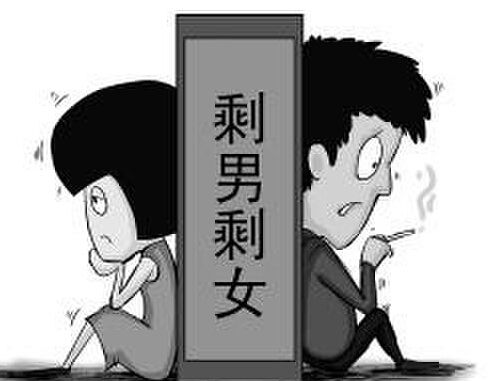(单词翻译:单击)
More people born between 1980 and 1989 are remaining single compared to those who are 10 years older when they were at the same age, a survey released last Tuesday showed.
一项上周二发布的调查显示,与10年前同年龄段的人相比,出生于1980年至1989年间的(80后)人群中的单身者更多。
Nearly one in five men and one in eight women in the age group have never married, according to the survey conducted by the Center for Population and Development Policy Studies at Fudan University and the university's Research Center for Dataology and Data Science.
复旦大学人口和发展政策研究中心和该校数据科学研究中心的调查显示,80后中有近1/5的男性和1/8的女性未婚。
"We cannot make a conclusion currently whether some in the age group, especially those born between 1985 and 1989, are just postponing marriage or have given up on marriage. We'll try to find the answer through the follow-ups," said Shen Ke, associate professor from the School of Social Development and Public Policy of Fudan University and one of the research leaders.
复旦大学社会发展与公共政策学院副教授、该研究的带头人之一的沈可称:“我们现在还不能得出一个结论,即是否有些人,尤其是那些在1985年到1989年之间出生的人,只是推迟结婚还是放弃了婚姻。我们会通过后续的研究来找到答案。”

In 2005, the ratio of men and women between 30 and 34 who remained unmarried was 12% and 7% respectively, according to official figures.
官方数据显示,2005年,30岁至34岁的男性与女性的未婚比例分别为12%和7%。
Cohabitation contributes to the fact that people are getting married late, according to the survey report.
调查报告称,同居是人们推迟结婚的因素之一。
"For many, cohabitation is not a substitute for marriage but is a taste of married life to see whether they enjoy it or not. Roughly 60 percent of the survey respondents cohabit for no more than half a year, and then some break up," Shen said.
沈可教授表示:“对许多人来说,同居不是婚姻的替代品,而是婚姻生活的一种体验,来看他们是否享受。受访者中,大约60%的人同居不超过半年,然后一些人就分手了。”


